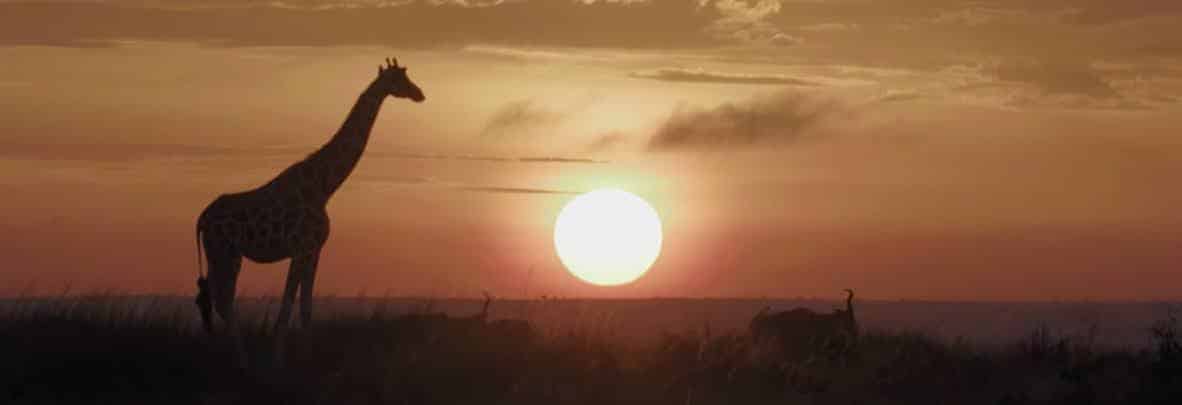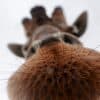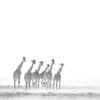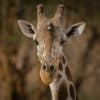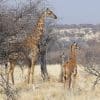EarthRanger Announces Inaugural Conservation Tech Award Recipients
Giraffe Conservation Foundation and Lion Guardians are harnessing the power of technology to protect endangered species and promote human-wildlife coexistence
EarthRanger announced the Giraffe Conservation Foundation and Lion Guardians as the recipients of the inaugural Conservation Tech Award, which was developed to catalyse innovation and development in conservation solutions. The award recognises organisations using technology to protect endangered species, monitor ecological changes and animal behaviour, and promote peaceful human-wildlife coexistence.
“GCF and Lion Guardians’ work embodies what we are looking to recognise and encourage through this grant,” said Jes Lefcourt, Director of EarthRanger. “They are both approaching big, continent-wide challenges that don’t have simple solutions, and they are applying a host of technologies in creative ways, ranging from crowdsourced data collection to advanced AI models for identifying individual animals. We hope that the grant aids in their work and that others will be inspired to join the effort to empower conservation through technology.”
And the winners are:
Giraffe Conservation Foundation
As an EarthRanger user, GCF has used machine learning, rapid geospatial data management and visualisation to understand giraffes in unprecedented ways and advocate for their protection. For example, GCF created the Twiga Tracker Initiative, the largest GPS satellite tracking study ever conducted on giraffe. With help from its partners, GCF has successfully collared more than 250 individual giraffes in 12 countries with solar-powered tracking devices to follow their migration patterns, observe their interactions with their environments, and aid in anti-poaching efforts.
GCF is also conducting repeated surveys of giraffe populations using pattern recognition and machine learning to compile a database of all known individual giraffe in many populations in Africa, in addition to using genetics to reclassify giraffe taxonomy from one to four distinct species. GCF’s hope is to inspire a passion to protect these species, who play a vital role in maintaining balance in ecosystems – yet have dropped by almost 30 percent in the last three decades due to habitat loss, human population growth, disease and poaching.
Lion Guardians
Lion Guardians (LG) has a unique community-centric approach to conservation, leveraging and prioritising the experience and perspectives of local communities to inform their work to protect lion. LG uses a combination of tracking devices on lion, and GPS readings observed by community members (“Guardians”) to help build risk maps for herders, to track the locations of human-wildlife conflict incidents and to conduct patrols who guard bomas (livestock enclosure) and known hot-spots via non-harmful deterrents.
LG blends community expertise with the use of artificial intelligence to create a new model for tackling lion conservation challenges – specifically the LINC (Lion Identification Network of Collaborators) programme, a system which helps identify and monitor individual lion and their behaviours via their whisker patterns and imaging. LINC allows different conservationist researchers to input their data for tracking and sharing, enhancing the shared mission of protecting these endangered species.
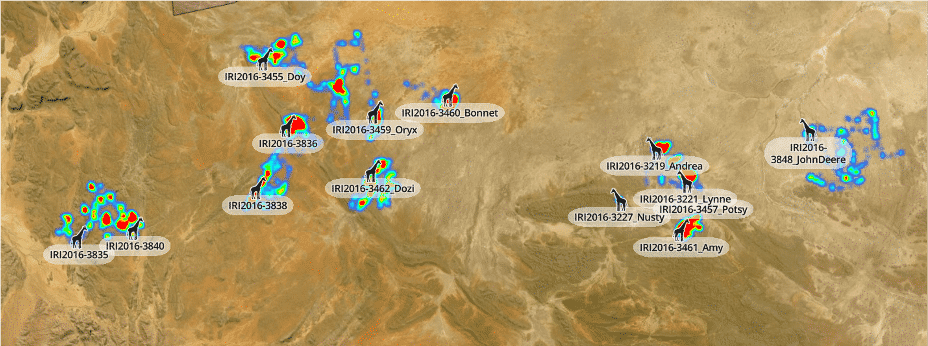
“The Giraffe Conservation Foundation and Lion Guardians are putting often-hyped technology to the test in real-world rugged field environments, pairing technology with local community knowledge, and helping researchers do less data-wrangling and more science,” said Tanya Birch, Programme Manager at Google Earth Outreach and a member of the selection committee. “With strong track records showing impact at conserving giraffe and African lion species, the Conservation Tech Award can be a launching pad for novel applications of tech.”
The Conservation Tech Award consists of two $15,000 prizes. Applications were evaluated based on an assessment of innovativeness, potential for scalability, clarity of success metrics, clarity of next steps, and likelihood of having impact. This year, the applicant pool included nearly 100 applications from organisations on six continents and 32 countries, all involved in vital conservation efforts around the world. From protecting endangered giraffe species and lions in Africa, to researching marine ecosystems in Malaysia, to preserving wildlife in Australia, the Conservation Tech Award applicants have used technology to adapt to new realities and develop unique, innovative solutions for environmental protection and management.
Finalists were determined by a selection committee composed of Allen Institute for AI conservation leaders and representatives from ConservationX Labs, Google, Grumeti Fund, Microsoft, Mara Elephant Project, WCS, and WILDLABS.
Conservation Tech Award grantees GCF and Lion Guardians spoke at the 2021 EarthRanger User Conference about how they are utilising technology to protect endangered species and promote human-wildlife coexistence.
The Conservation Tech Award’s sizeable and diverse applicant pool reflects the growing need for efficient and effective conservation measures. In the past 50 years, two-thirds of the world’s wildlife and biodiversity has been lost – so continued investment and support for solutions, such as the Conservation Tech Award, are intended to help grantees prevent further habitat loss and protect endangered species.
Access to conservation technology continues to change the face of conservation. It has been shown to aid efforts even through the COVID-19 pandemic, allowing conservationists to do more with less and continue their work amidst significant challenges such as decreased budgets and increased illegal activity such as trade and poaching. As technology’s role as a force for good increases, EarthRanger and organisations across the globe are continuously looking for ways to provide and support tech-based solutions that empower conservationists and their communities.

